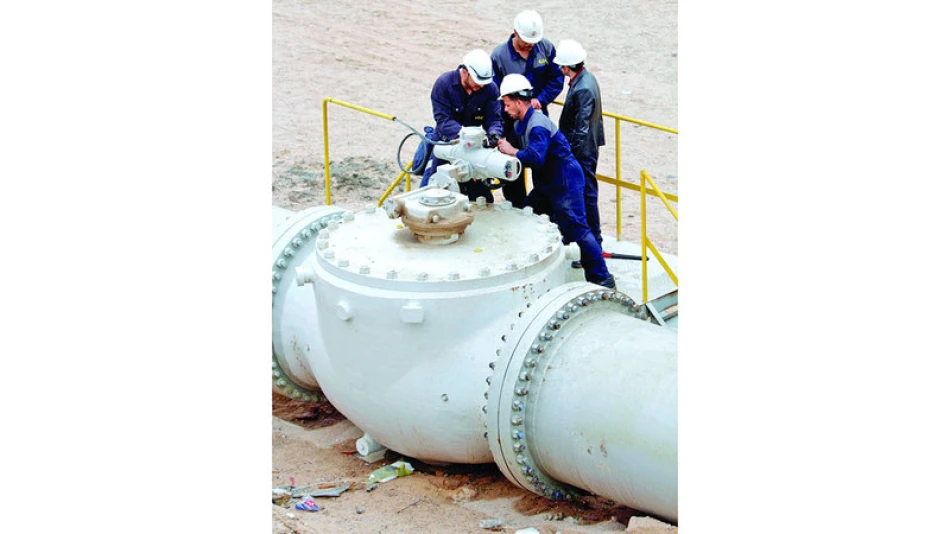
Chinese Independent Oil Firms Boost Investments in Thriving Iraqi Energy Market
China's Independent Oil Giants Double Down on Iraq as Western Majors Retreat
While global oil majors scale back operations in Iraq, smaller Chinese independent companies are aggressively expanding their footprint in OPEC's second-largest producer. These nimble firms plan to double their Iraqi output to 500,000 barrels per day by 2030, capitalizing on lower costs, faster project timelines, and Baghdad's urgent need to accelerate development amid geopolitical pressures.
The New Players Reshaping Iraq's Energy Landscape
Companies with names unfamiliar to most Western investors—Geo-Jade Petroleum Corp, United Energy Group, Zhongman Petroleum and Natural Gas Group, and Anton Oilfield Services—won half of Iraq's exploration licensing rounds last year. This marks a significant shift from the dominance of state-owned Chinese giants like CNPC, which currently controls over half of Iraq's production through massive fields including Halfaya, Rumaila, and West Qurna-1.
The timing is strategic. Iraq switched to profit-sharing contracts a year ago, abandoning fixed-fee arrangements in a bid to accelerate projects after ExxonMobil and Shell reduced their operations. This contractual shift has proven particularly attractive to Chinese independents seeking higher returns than domestic opportunities can provide.
Speed and Cost Advantages Drive Chinese Success
The competitive edge of these Chinese independents lies in execution speed and cost efficiency. According to Ali Abdul-Amir from state-run Basra Oil Company, Chinese firms can develop an Iraqi oil field in two to three years—dramatically faster than the five to ten years typically required by Western companies.
Cost reductions are equally impressive. Dai Xiaoping, CEO of Geo-Jade Petroleum, revealed that independent Chinese companies have nearly halved the cost of drilling a development well in major Iraqi oil fields over the past decade, bringing costs down to $4-5 million per well.
Geo-Jade exemplifies this approach. The company allocated $848 million to revive the largely dormant Tuba field in southern Iraq, targeting 40,000 barrels per day by mid-2027. The broader South Basra project includes plans for a 200,000 barrel-per-day refinery, petrochemical complex, and two power plants—requiring billions in additional investment.
Iraq's Strategic Balancing Act
For Baghdad, the influx of Chinese independents represents both opportunity and challenge. Iraq aims to increase production by more than half to over six million barrels per day by 2029, requiring massive capital investment that Western majors have been reluctant to provide given regional security concerns and regulatory complexities.
The Chinese offer compelling advantages: competitive financing, lower costs through Chinese labor and equipment, willingness to accept thinner profit margins for long-term contracts, and proven ability to operate in challenging security environments.
However, this comes with trade-offs. Former Basra Oil Company crude operations director Mowaffaq Abbas expressed concerns about transparency and technical standards among Chinese firms, noting criticism over their heavy reliance on Chinese staff while relegating Iraqis to lower-paying positions.
Western Companies Fight Back
The Chinese advance hasn't gone unchallenged. Some Western majors are returning with substantial commitments. TotalEnergies announced a $27 billion project in 2023, while BP plans to spend up to $25 billion redeveloping four fields in Kirkuk. These investments suggest Western companies recognize the strategic importance of maintaining presence in Iraq despite operational challenges.
Implications for Global Energy Markets
This shift reflects broader trends in global energy investment. As Chinese state-owned enterprises face limited domestic opportunities due to government-dominated oil and gas sectors, independent companies are following patterns seen in other heavy industries—seeking new markets to deploy excess capacity and expertise.
For energy markets, the implications are significant. If Chinese independents achieve their production targets, they could add substantial supply capacity at a time when global energy security remains a priority. Their lower-cost operational model could also pressure pricing across the Middle East, potentially affecting investment returns for competitors.
The success of these Chinese independents in Iraq may serve as a template for expansion into other emerging oil markets, particularly in Africa and Latin America, where similar cost advantages and risk tolerance could prove decisive competitive factors.
Most Viewed News

 Sara Khaled
Sara Khaled






